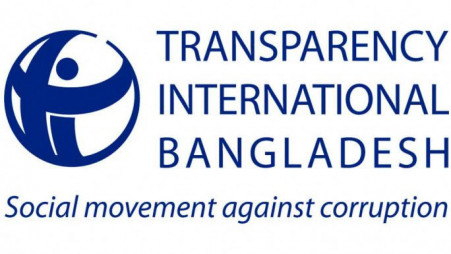30% of e-tender in control of 5% contractors: TIB

Only 5% of contractors in e-government procurement control 30% of work, according to a study that suggests that efforts to reduce corruption have had limited impact, largely due to political influence, lobbying and collusion among contractors.
The study – conducted by Transparency International Bangladesh (TIB) – revealed that among the 92 government organisations using e-GP for procurement, over 75% of the contracts were awarded through single tendering, resulting in 416 contractors receiving more than 75% of the work involving Tk60,000 crore.
In these cases, multiple organisations did not participate in the e-GP tender, as revealed in the findings presented during the press conference, titled "E-Government Procurement in Bangladesh: Globalization of Competitive Practices Trends (2012-2023)."
It also showed that 24.55% of procurement of goods and 18.42% of works in e-GP are awarded through a single tender.
"Such practices are disrupting the goal of reducing corruption through the creation of a competitive environment in government purchases using e-GP," said TIB's Executive Director Iftekharuzzaman during the press conference held at the organisation's Dhanmondi office on Monday.
"The process of capturing the market by contractors has now become institutionalised. Due to this, good initiatives are not getting results. Political influence, lobbying and collusion between contractors determine who will get the job," he added.
According to the study, Chattogram City Corporation and Dhaka South City Corporation have awarded the most work in a single tender among the country's city corporations. Two for each of the three works of Chattogram City Corporation and one for each of two works of Dhaka South have been awarded through single tenders.
It was noted that despite e-tendering invitations over the past 12 years, approximately 63% of Chattogram City Corporation and roughly 55% of Dhaka South received only one tender. Additionally, in e-GP, some organisations have awarded 100% of the work through a single tender.
A single contractor has received 100% of the work of some of the 10 ministries and departments surveyed.
For example, M/s Khaleque Enterprise has secured 100% of the 25 jobs at Hosenabad Technical School and College under the education ministry. M/s Dhaka Metal and Machinery Store got 21 out of 22 jobs at Chuadanga School and College under the same ministry, the TIB study mentioned.
Bangladesh Science House has done 22 out of 24 jobs at LRI Cumilla under the fisheries and livestock ministry.
According to TIB, local contractors still get 70% of the jobs in e-GP.
The study shows that the Local Government Division ranks first among the ministries or departments with the highest purchases in e-GP, doing 44% of their orders and 41% of contract value. Only 10 ministries and departments carry out 93% of their procurement through e-GP, as per the work order.
Despite 12 years of implementation, 80–65% of government procurement still occurs outside the e-government procurement system. Additionally, 99% of purchases made through e-procurement are below Tk25 crore.
According to the TIB study, the main objective of e-GP was to reduce corruption and improve the quality of work by increasing transparency in the government procurement process. However, syndicates of government procurement officers and bidders are still active, resulting in quality being degraded due to work-selling, illegal subcontracting, and work-sharing.
But using e-GP saves at least 7% of the cost compared to the traditional paper system. This has saved the government $1.4 billion until February 2023. If government procurement is done through 100% e-tendering, annual savings will be $1.76 billion.
Iftekharuzzaman said about $25 billion is being spent on government procurement every year. However, e-GP is taking less time, but the competitive environment it was supposed to create to reduce corruption has not materialised. A group of contractors have taken over the market here as well.



 Keep updated, follow The Business Standard's Google news channel
Keep updated, follow The Business Standard's Google news channel
















